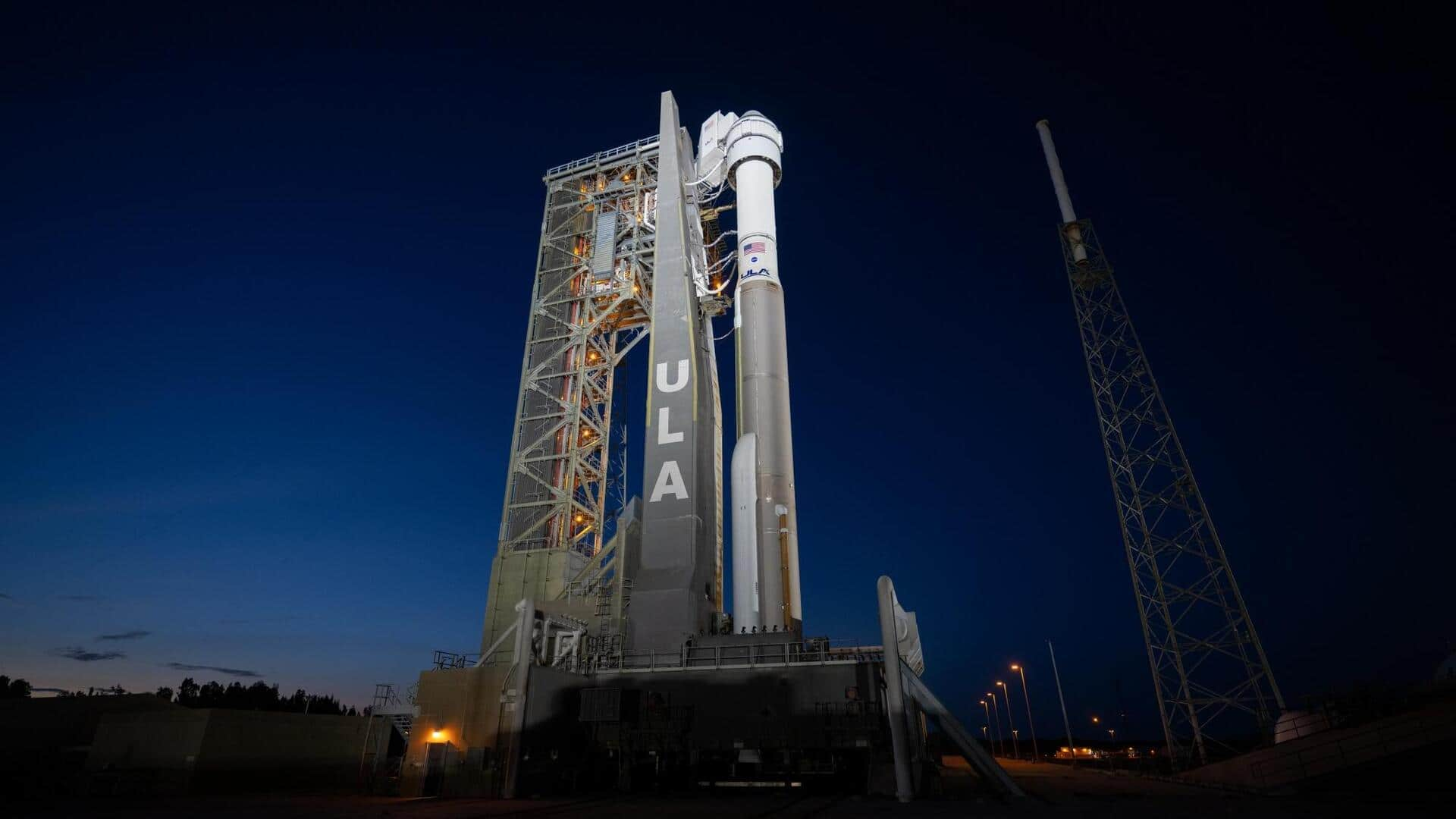
Boeing Starliner's first crewed test flight delayed over technical issue
What's the story
Boeing's highly anticipated Starliner space capsule has experienced a delay in its first crewed test flight due to a technical issue. The CST-200 Starliner, designed to transport astronauts to the International Space Station (ISS), had its initial journey postponed by at least a day as launch teams were unable to resolve the problem in time for the scheduled takeoff earlier today. This comes two years after the gumdrop-shaped capsule successfully completed its first uncrewed test flight to the orbital lab.
Countdown halted
Launch postponed with less than two hours to go
The recent flight was put on hold with less than two hours remaining in the countdown. The Starliner was set to launch from NASA's Kennedy Space Center in Florida on an Atlas V rocket, provided by United Launch Alliance. The delay was attributed to a problem with a valve in the rocket's second stage. "Standing down on tonight's attempt to launch," tweeted NASA chief Bill Nelson, emphasizing that "NASA's first priority is safety. We go when we're ready."
Mission delayed
Astronauts await another launch attempt
The crew for this mission, NASA astronauts Barry Wilmore (61) and Sunita Williams (58), were secured in their seats inside the spacecraft about an hour before launch activities were halted. Although Tuesday night is the next available launch window, no immediate decision was made regarding when another liftoff attempt would occur. This mission holds significant importance for Boeing amidst a safety crisis engulfing its commercial aviation division.
Crucial mission
Starliner's significance for NASA and Boeing
The mission is also crucial for NASA, which has been seeking another commercial partner to transport astronauts to the ISS. SpaceX achieved this with its Dragon capsule in 2020, ending nearly a decade of reliance on Russian rockets after the Space Shuttle program concluded. The Starliner is planned to dock with the ISS for a week. During this time, Williams and Wilmore will carry out a range of tests to confirm the capsule's functionality before returning to Earth.
Space partnerships
NASA's Commercial Crew Program and future plans
In 2014, NASA awarded fixed-price contracts of $4.2 billion to Boeing and $2.6 billion to SpaceX for capsule development under its Commercial Crew Program. This marked a shift in NASA's strategy from owning space flight hardware to paying private partners for their services. Once Starliner is fully functional, NASA plans to alternate between SpaceX and Boeing vessels for human transportation to the ISS, even beyond the planned retirement of the orbital lab in 2030.